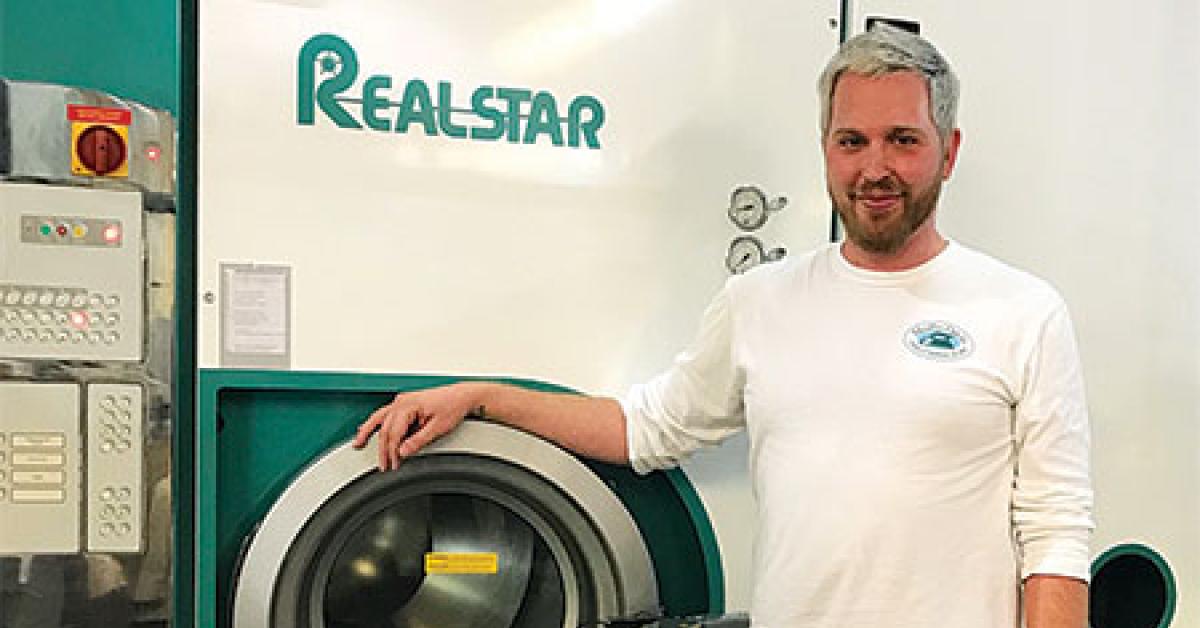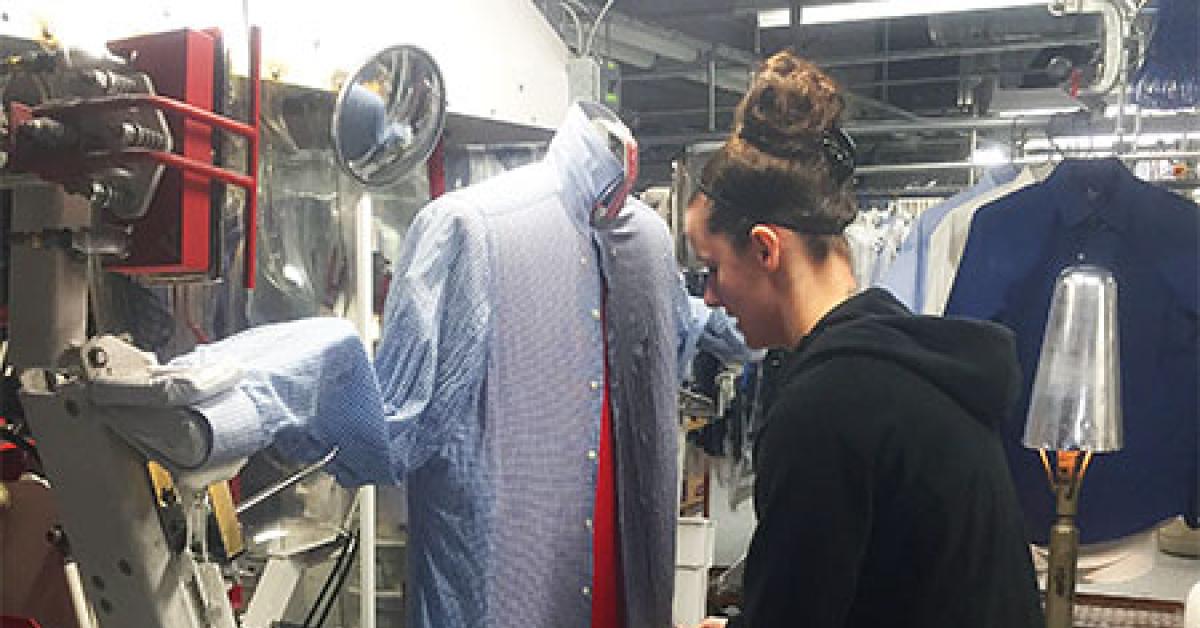LAUREL, Md. — The Drycleaning & Laundry Institute’s (DLI) School of Drycleaning Technology has trained thousands of dry cleaners over its long history, teaching everything from basic cleaning to advanced drycleaning and wetcleaning, notes former American Drycleaner editor Ian P. Murphy, writing for DLI.
The DLI School has, in turn, helped advance the industry by giving production staffers, supervisors, and owners nationwide a baseline of knowledge they might not have had if learned only by doing.
Jason Harmon, production manager at Medlin-Davis Cleaners in Raleigh, N.C., signed up for the school’s Introduction to Drycleaning and Advanced Drycleaning courses after eight years in the business at the suggestion of owner David Makepeace.
“He thought this would be a great course to take to gain all of the knowledge necessary to come home and work with my staff,” Harmon indicates.
The classes offered a mix of textbook learning, classroom lecture, discussion, and hands-on practice with clothing and machinery, he relates, in an extremely collegial atmosphere. “We focused on many subjects: textiles, spotting, wetcleaning, drycleaning, and finishing.”
Kara Hackenberg, shirt press operator with Balfurd Cleaners in State College, Pa., signed up for DLI’s Introduction to Drycleaning class to build her knowledge of cleaning and spotting, as well as improve pressing techniques on skirts, pants, and sport jackets.
“We all received notebooks with step-by-step directions on stain removal, what to look for in stains, and which steps to take first,” Hackenberg says.
“We also removed stains ourselves. The course was very hands-on in spotting different materials with different agents — learning what will work, what won’t work, and what will ruin materials if you don’t pay good enough attention.”
“I learned so much with the hands-on parts of the course,” Harmon says. “It was so great to watch the demonstrations and learn things I never would have thought of. It gave me so much confidence upon returning.”
DLI instructors are available throughout the sessions to answer questions and assist with critical techniques.
“They assisted by going over the sections in the course and gave us the opportunity to ask questions,” Harmon points out. “They were extremely accessible and happy to help in any way they could.”
“Our instructors were fabulous,” Hackenberg agrees. “Brian, Jim, and Jim talked with us throughout the week, and when we had questions, they were right there to help us out.”
“A large percentage of our students have never used cleaning machines or presses,” says Brian Johnson, director of Education & Analysis at the Institute. “Others may already be familiar with the drycleaning business, but were never taught the proper techniques.”
In a field that demands technical expertise and customer interaction, there’s no substitute for training, Murphy concludes in writing for the Institute.
“DLI was the biggest gift I could have received to advance in my career,” Harmon says. “I couldn’t be happier, and I would take the course over and over if I could.”
Have a question or comment? E-mail our editor Dave Davis at [email protected].

